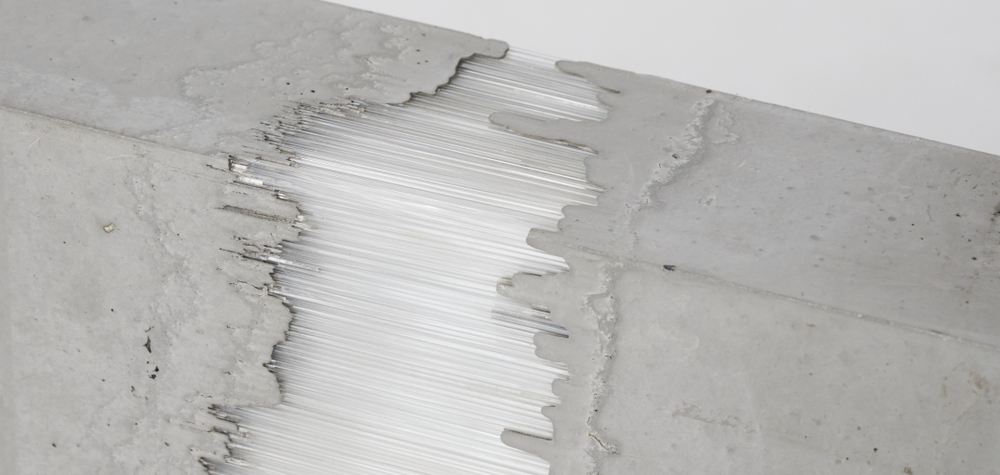Harry Morgan
Harry Morgan (b. 1990, UK) is a British artist known for his unusual marrying of materials and experimental approach to traditional process. Referencing ancient techniques and histories such as Venetian glassblowing and Brutalist architecture. He challenges the connotations behind the materials. Despite being composed of the same elements, glass and concrete appear as conflicting materials. Glass reflects ambiguity and intangibility. In sharp contrast, concrete is brutally physical.
Harry Morgan has graduated from Edinburgh College of Art in 2014. Since then, Harry Morgan has been exhibited widely throughout the UK and internationally, including shows in the Czech Republic, Spain, Sweden, Denmark, Dubai and the USA. He has won several awards including the Award for Emerging Talent at the 2015 British Glass Biennale and an Inches Carr Graduate Craft Award at the 2016 Scottish Craft Awards. In 2019, he was among the 29 artists shortlisted for the 2019 edition of the Loewe Craft Prize. His work is also held in the permanent collections of the Victoria & Albert Museum, London and European Museum of Modern Glass in Coburg, Germany. He may be an emerging artist since graduating from Edinburgh College of Art with a first-class degree in Glass; nevertheless, his work and talent has already been acknowledged worldwide. He has been exhibited in countries such as Sweden, Dubai and the United States and has won several awards such as the Award for Emerging Talent at the 2015 British Glass Biennale and a Graduate Craft Award at the 2016 Scottish Craft Awards. "The use of glass in my work draws inspiration from the ancient Venetian glassblowing technique, murrine; where each rod or thread of glass is individually pulled by hand from a furnace. The glass is then arranged into a sequential structure and cast within concrete or precious metal, which binds them as one object. Im interested in applying these traditional skills in alternative directions." Harry Morgan, 2017.




